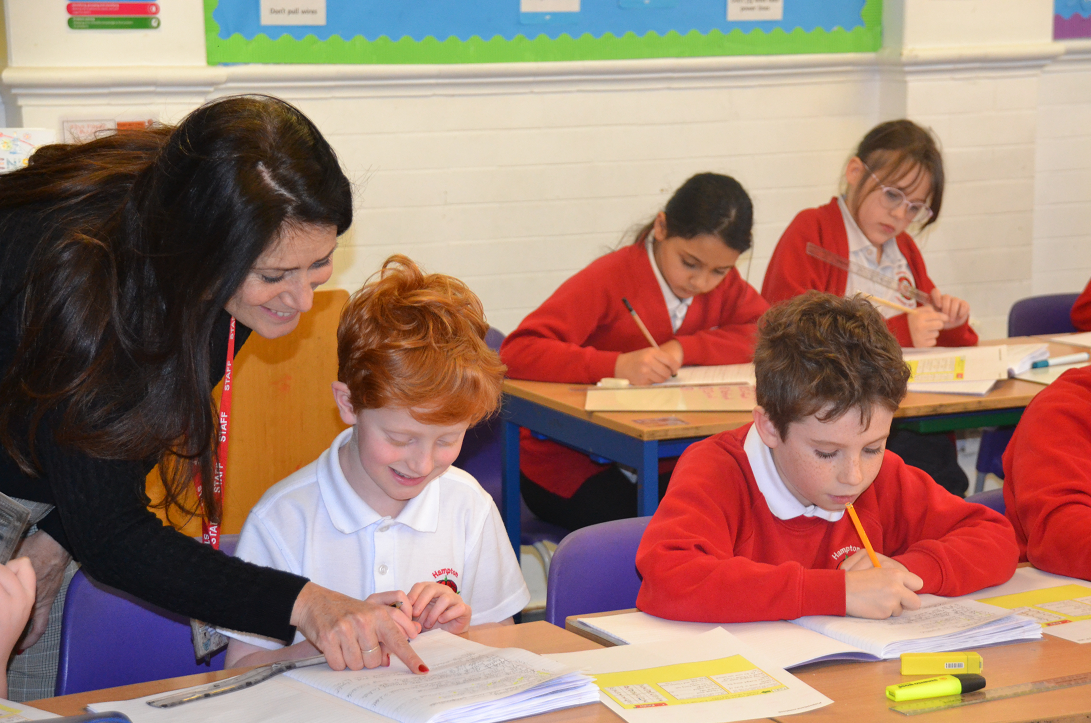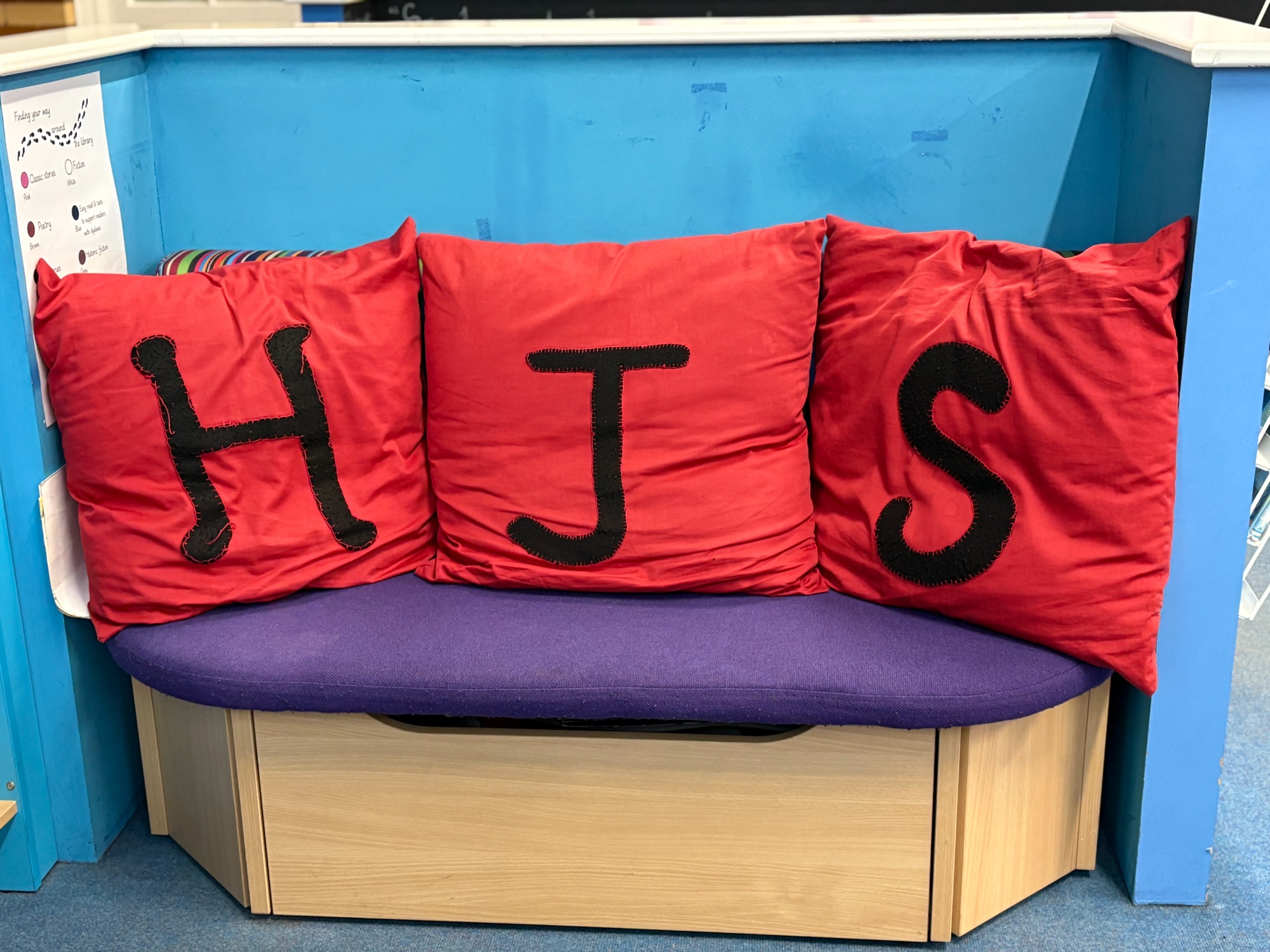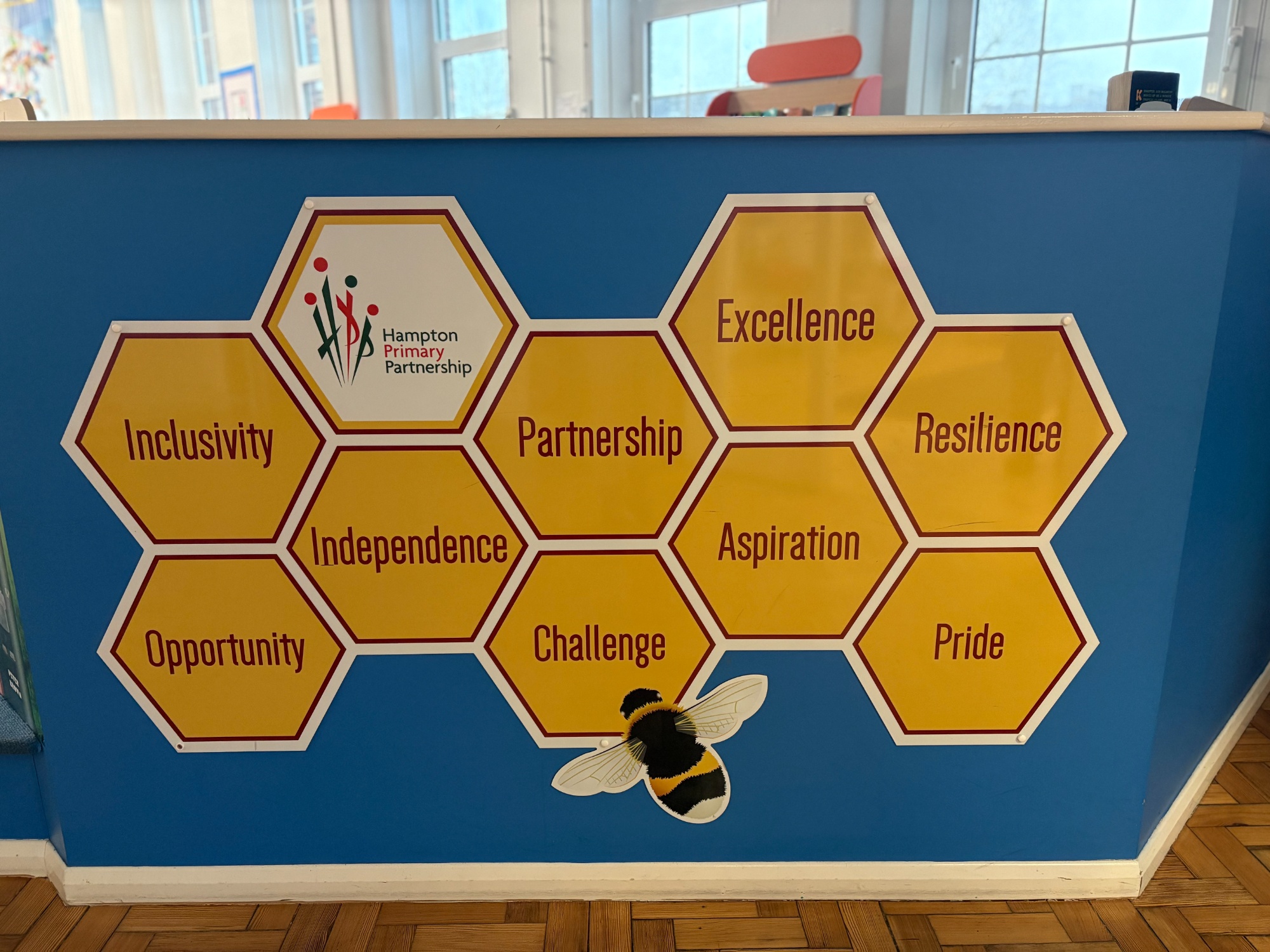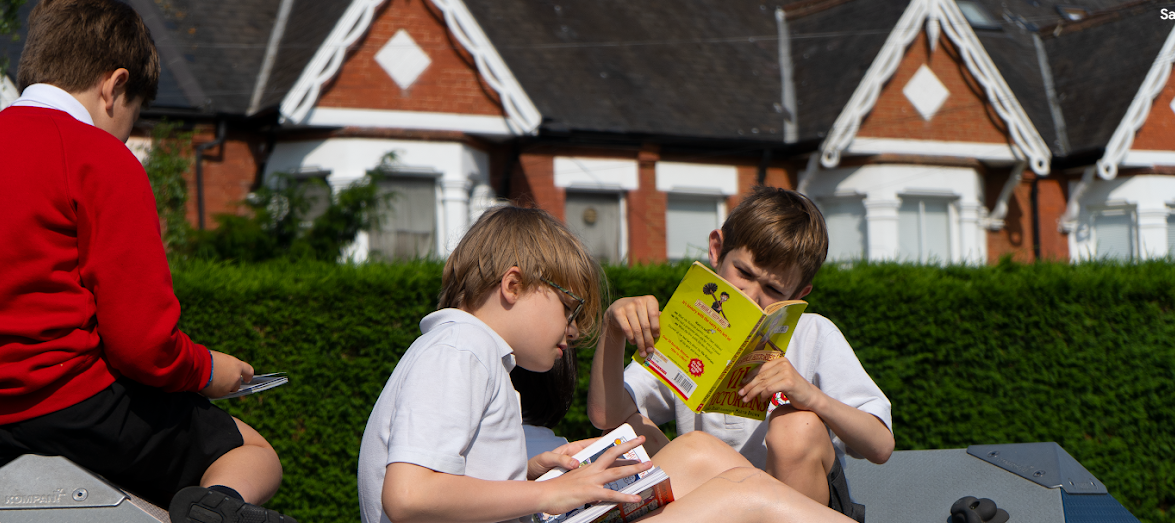
English and Phonics
Reading Intent
At Hampton Junior School, our intent is that all pupils leave us and enter their next stage of education, as literate individuals, who have reached the end point outlined by the National Curriculum, as required for our pupils transferring to secondary school.
It is very much our intention that all of our pupils foster a love for reading and we strive to develop in them a life-long passion for reading. We intend to develop each pupil’s reading ability with fluency, an understanding of genres and most of all enjoyment.
We understand fully that reading is an essential tool for life and that it underpins pupils’ performance in all areas of the curriculum.
From the moment a child enters Hampton Junior School, they will be engulfed in and exposed to a wide range of texts and an array of opportunities to be read to, read by and read with.
"We work hard to achieve our reading and writing badges"
Phonics
At HJS, we ensure that we provide high-quality phonics teaching for children who are working towards achieving reading fluency. We follow the Sounds-Write programme which allows for a seamless transition from HISN to HJS. Information from assessments conducted in September informs teachers of any gaps in phonetic knowledge and skill. Then, identified children will access phonics teaching in a small group setting. Further assessments are carried out throughout the year on a six weekly cycle and these assessments include the statutory phonics screener test. Teaching staff carefully track and monitor the progress of children’s improving phonic knowledge and reading skills. We also have a section of the whole-school library that is tailored to children for whom phonics is still a focus. We carefully match up reading books with the sounds that are being taught each week in phonics interventions to provide children with lots of opportunities to recap their school learning at home when reading with an adult. Parent information meetings about supporting reading at home take place termly.
Writing
At Hampton Junior School, a pupil of English language and literature will be able to adapt their written language as a result of the receptive and productive English skills they have acquired. They will be able to write eloquently and with increased stamina across a range of genres while developing a love of writing.



















